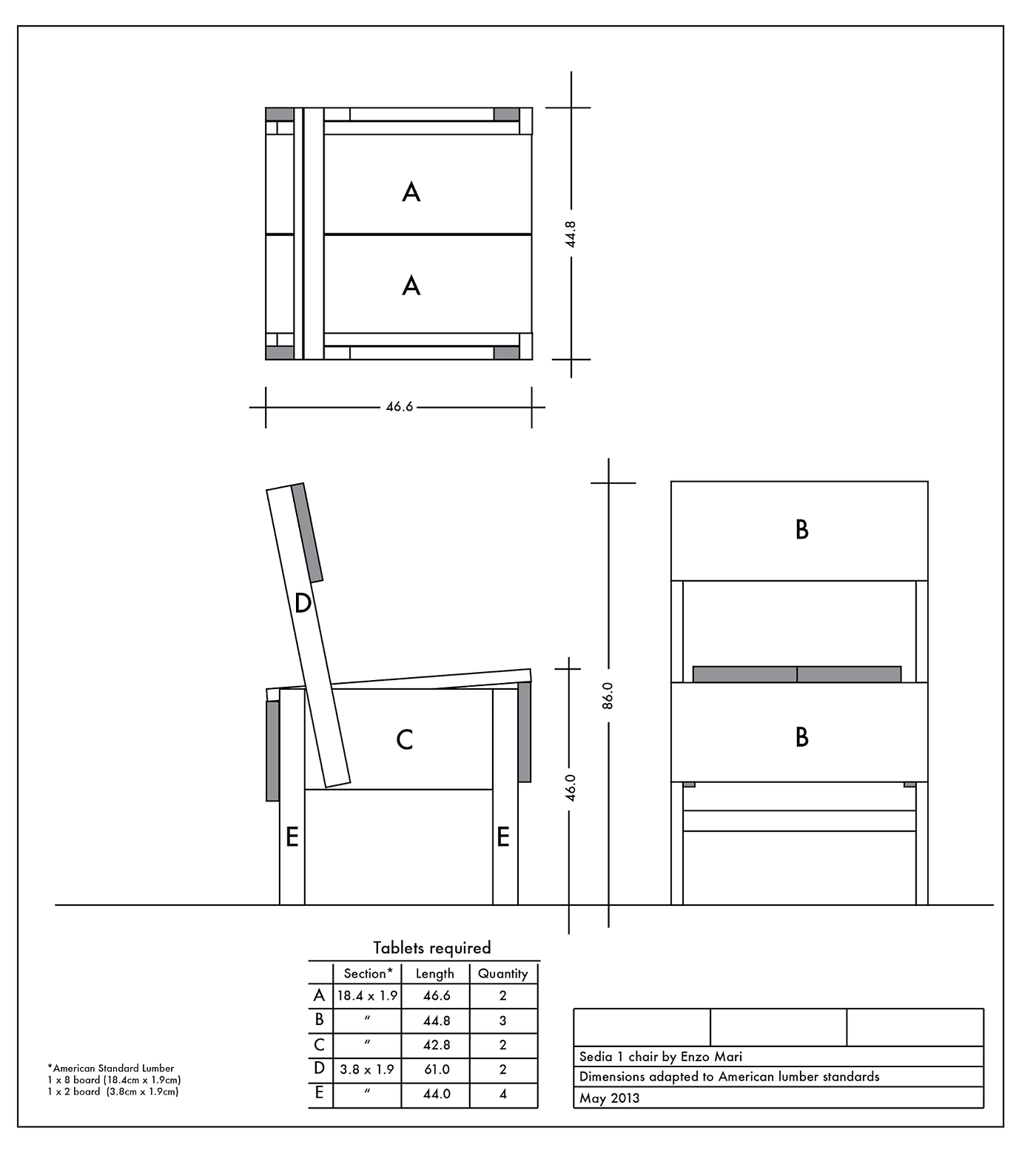Enzo Mari (1932-2020) was an influential Italian modernist artist and designer, renowned for his critical perspective on design and production. His work consistently emphasized functionality, simplicity, and social responsibility, often challenging prevailing consumerist culture.
Autoprogettazione
The most iconic chair associated with Enzo Mari is "Sedia 1" (Chair 1), a key piece from his 1974 project "Proposta per un'Autoprogettazione" (Proposal for a Self-Design). This project provided free, open-source plans for individuals to build their own furniture using basic materials and simple techniques. The core idea was not merely to provide cheap furniture, but to educate users about the fundamentals of design and construction through direct experience.
Key tenets of Autoprogettazione included:

- Democratization of Design: Making design accessible to everyone, empowering individuals to become creators rather than passive consumers.
- Educational Purpose: The act of building was intended to impart an understanding of structural logic and material properties.
- Critique of Mass Production: Challenging the throwaway culture and the alienation of users from the objects they own.
- Material Honesty: Typically specified raw, unfinished pine wood and common nails, emphasizing the basic elements of construction.
Sedia 1: Design and Philosophy
Sedia 1 is characterized by its stark, almost rudimentary aesthetic. It is constructed from pre-cut pine planks assembled with nails, following a clear and straightforward plan. The design is deliberately essential, stripping the chair down to its fundamental structural elements.
Key characteristics of Sedia 1:
- Simplicity: The form is basic, driven entirely by function and ease of assembly.
- Accessibility: Designed to be built by anyone with minimal tools and skills.
- Transparency: The construction method is visible and easily understood.
- Utilitarianism: It is a practical object, but its primary value lies in the process of its creation and the ideas it embodies.
Mari intended for the builder to critically engage with the design. By assembling the chair, one would reflect on the nature of objects, labor, and the design process itself. The "imperfections" of a self-built piece were part of its value, contrasting with the anonymous perfection of industrially produced goods.
Legacy and Influence
Enzo Mari's Autoprogettazione, and Sedia 1 in particular, remains a seminal work in the history of critical and socially engaged design. It prefigured concepts like open-source design and the DIY movement. The project continues to inspire designers and makers to consider the ethical and educational dimensions of design, advocating for a more conscious and participatory relationship with the material world. While some pieces from Autoprogettazione were later put into limited production by manufacturers, the original spirit of self-construction remains its defining feature.







